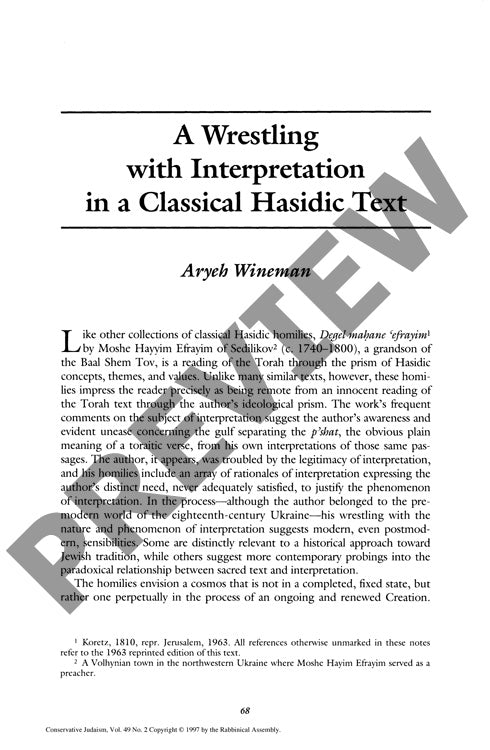A Wrestling with Interpretation in a Cla
Couldn't load pickup availability
Deep hermeneutical anxieties pervade the pages of *Degel mahane efrayim*, where Moshe Hayyim Efrayim of Sedilikov (c. 1740-1800) wrestles openly with the legitimacy of his own interpretive work. As grandson of the Baal Shem Tov, Efrayim departed markedly from typical Hasidic homiletics by expressing persistent unease about the gap between *p'shat* (plain meaning) and his innovative Torah readings. Through close analysis of the text's meta-interpretive comments, several key rationales emerge for his distinctive approach: Torah's demand for contemporary relevance, the presence of primordial light within sacred text, and the mystical unity between God, Torah, and interpreting souls. While employing traditional midrashic and kabbalistic strategies, Efrayim openly acknowledges their rhetorical limits, arguing that authentic Torah understanding must reflect both the interpreter's soul and generational consciousness. His methodology reveals remarkably modern sensibilities about the paradoxical relationship between sacred text and interpretation. This eighteenth-century Ukrainian work ultimately reframes interpretation not as mere exegesis but as participation in ongoing divine creation, anticipating contemporary debates about textual meaning, interpretive authority, and the dynamic interplay between reader and text.

More Information
-
Physical Description
-
Publication Information
Published 1997
ISBN
-
Publication Credits
Aryeh Wineman

